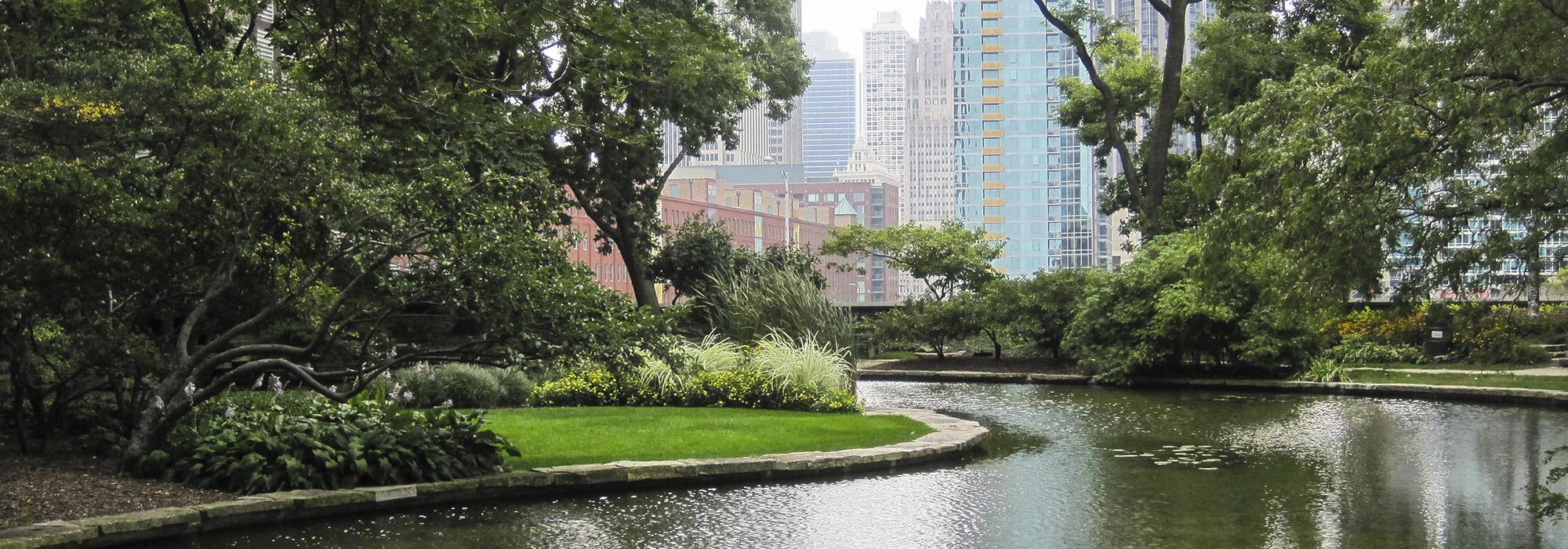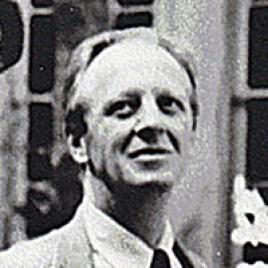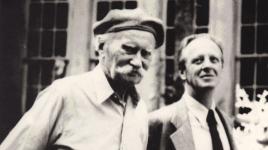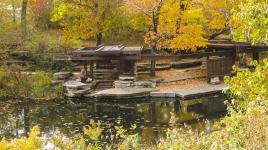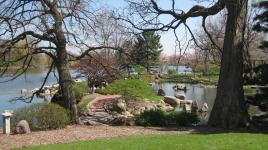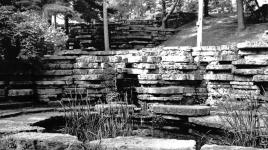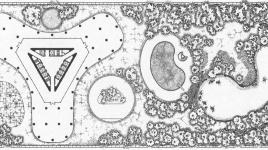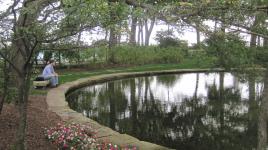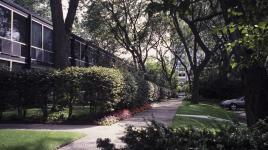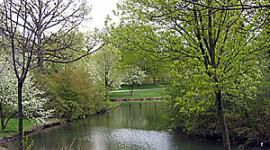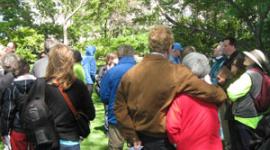Pioneer Information
Over the course of his long and varied career, Caldwell was professor, poet, author, landscape architect, civil engineer, and city planner. Apprenticing under landscape architect Jens Jensen from 1924 to 1929 strengthened Caldwell’s ecological sensibilities and knowledge of indigenous plants. Prairie School design principles, such as horizontality and the use of locally-sourced materials, pervade Caldwell’s work. Influenced by Frank Lloyd Wright’s organic designs, Caldwell’s design for Eagle Point Park in Dubuque, Iowa features stratified limestone pavilions that appear to grow from the landscape. Caldwell worked for the Chicago Park District until 1940, creating comprehensive landscape plans for several major parks, including Jackson Park and the Lily Pool in Lincoln Park.
From 1945-1960, Caldwell taught at and worked on the architecture school founded by Mies van der Rohe, the Illinois Institute of Technology (IIT), where he was awarded a Master of Science in city planning in 1948. A critic of urban sprawl and advocate for environmental conservation, Caldwell headed the special projects office at the Chicago Department of City Planning for Mayor Richard Daley through the 1960s, during which time he also completed, with van der Rohe, Detroit’s urban renewal scheme, Lafayette Park, and the roof garden of Lake Point Tower. After several years as a professor at University of Southern California’s School of Architecture, Caldwell returned to Chicago, teaching at IIT from 1982 until his death in 1998. A prolific writer, his major essays included his 1931 “In Defense of Animals” and in 1945, “Atomic Bombs and City Planning”.



